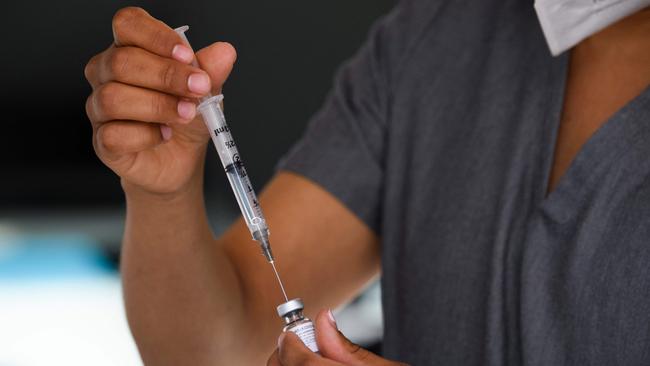Pfizer rejects calls to share vaccine formula
Pfizer’s most senior UK executive has criticised the call to forgo patents on Covid vaccines, warning that it would lead to a global shortage of raw materials.

Pfizer’s most senior UK executive has criticised the call to forgo patents on Covid vaccines, warning that it would lead to a global shortage of raw materials.
Ben Osborn, who leads the American drugs giant in the UK, said an intellectual-property waiver was “not the answer”. “We would see a very rapid short-term impact,” he said. “It could allow any organisation to start procuring some of these basic raw materials across multiple countries.” Osborn, 44, said it could even mean that existing vaccine manufacturers - which include Astra Zeneca and US biotech venture Moderna - would be unable to fulfil their obligations to deliver doses.
The push to make more vaccines comes amid a global shortage, with poorer countries falling behind the UK and America. About 1 in 4 people in rich nations has had at least one vaccine dose; the ratio is just 1 in 500 in low-income countries.
The gap has prompted a proposal to the World Trade Organisation by India and South Africa that drugs giants waive patents during the crisis, letting generic rivals make their own versions. The call has attracted support from more than 100 countries and was this month backed by the Biden administration. Joe Biden’s support for a waiver sent shares in Moderna and Pfizer down sharply.
Unlike Astra, Pfizer plans to profit from its vaccine, though it is offering it at cost price to low-income nations.
Osborn, speaking to mark his appointment as president of the Association of the British Pharmaceutical Industry, also criticised the moves towards vaccine nationalism. The European Commission is warring with Astra over supplies. “Politics should not be getting in the way of healthcare, and certainly not during a pandemic,” he said.
A Unilever spin-out developing faster-acting insulin is gearing up for a pounds 65 million market float.
Arecor, spun out of the consumer goods giant in 2007, has hired Panmure Gordon to advise on a listing on London’s AIM market. Unilever retains a 15.4 per cent stake in the company, which hopes its technology will pave the way for an artificial pancreas.
Arecor reformulates existing medicines to improve how they work. In the case of insulin, it makes it faster-acting, meaning diabetics could gain better control of insulin levels. Ultimately, this could be used in an insulin pump, rather than being delivered by injections.
The Sunday Times


